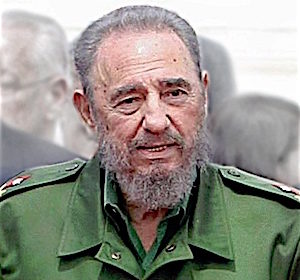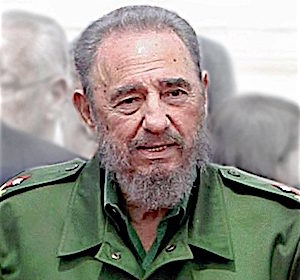Fidel Castro’s Life and Legacy

Fidel Castro (1926 – 2016), the leader of Cuba for a nearly 50 year stretch, is mourned in the streets of Havana, while his death is celebrated in the streets of Miami. He was a complex man who brought about great change, both positive and negative, for his small island nation. Due to poor health he relinquished a leadership role to his brother, and fellow revolutionary, Raúl, in 2008, but he is still very much on the minds of the Cuban people.
Literacy and health care
Under his rule, a great emphasis was placed on public education, and today Cuba has built over 10,000 schools and has a 98% literacy rate, one of the highest in the world. His government also spear-headed a massive public health effort, extending quality universal health care to the entire population, reducing infant mortality to 1.1%, despite great shortages imposed by the U.S. embargo.
Creative Commons Attribution license (reuse allowed)
Political repression
These are certainly impressive results, rivaling or surpassing the success of first world nations. However, under his communist regime, civil rights suffered, and many faced repression for political reasons. In response, over the years hundreds of thousands of refugees left Cuba for the U.S., including the largest single group, in 1980, during the Mariel boat lift, when over 120,000 people left their native land. Castro actually exploited this trend to his advantage, sending along many prisoners and mental patients, whom he deemed undesirable.
His early life and education
Castro was born the illegitimate son of a wealthy sugar plantation owner near Birán, Cuba. He had five other siblings, including his brother Raúl, and originally used the surname name Ruz. At 17 his father formally recognized him, two years after marrying his mother, and he began using his father’s surname, Castro. He was initially educated at Jesuit boarding schools, and as a boy he excelled both athletically and academically. He began the study of law at the University of Havana in 1945, where he immersed himself in student politics, fascinated by issues of social justice, Cuban nationalism, anti-imperialism, and socialism. Read more


